|
|
|
|
Earlier in December December Continues More Ramblings
December 19, 2000:
Said to be one of the largest temple complexes in the
world, Angkor Wat (actually the name of the central temple inside
the complex) will leave even the most pessimistic visitor open
mouthed. The first day I spent at the site we got a late start
-- 10am. The small group of four I was touring the temples with
over the next three days figured we should ease into the temple
experience. The next few days however, sunrise was the goal.
Five o'clock comes awfully early, says my father, and after three
days straight of hanging out with it I more than agree. You sort
of rumble over the poor roads of Siem Reap to the temple complex,
eyes barely open; you feel like you're in a movie or some type
of dream neither-world planet. That is, until the other 1,000
travelers show up to stare at the sun peaking over the horizon
and hitting the old pile of rocks. But shortly after the sky
lightens people drain out of the main Angkor wat on their way
to visit one of the 40 other wats inside the complex, you're
left pretty much alone to wonder through the old hallways and
steps in peace.
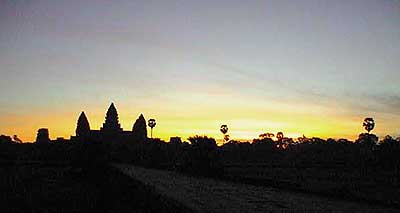
The second sunrise I saw I could have been in a movie. The
modern world crashed into Angkor as a Japanese director shouted
directions while a couple of Cambodians translated for the crew.
Smoking buckets gave a foggy feel to the early morning start
of the day. I sat on a step and watched, along with a few of
the temple monks, the crew shoot a scene or two.
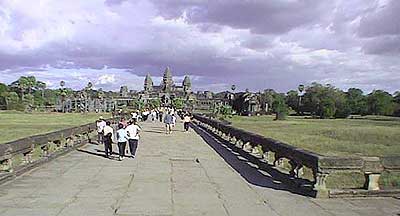
(The famous ANGKOR WAT
The complex was built roughly
between the 9th and the late 12th centuries. Angkor Wat itself
(shown here) was constructed towards the end of the era in the
11 hundreds.)
Now, after setting the alarm for 5:45am, I'm getting ready
for my third early morning start to the day. But instead of heading
out to see some of the most impressive stone structures in the
world, I'm going to be jumping on a pickup on my way back to
Bangkok. After nearly 12 months on the road I have just four
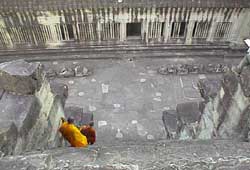
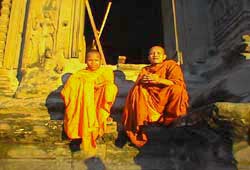
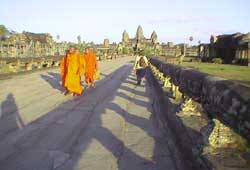
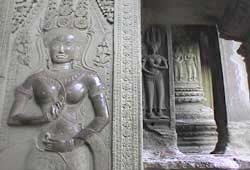
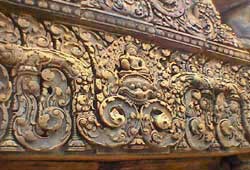
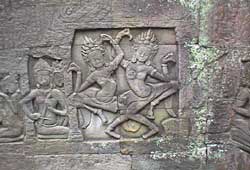
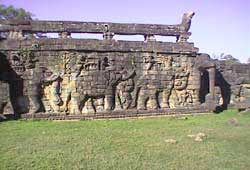
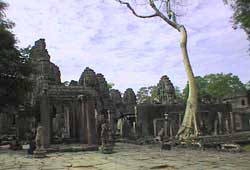
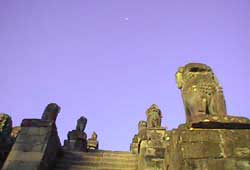
(With more than 40
different sites open to the public, three days is not nearly
enough time to visit each individual area. Driving from place
to place, you can only imagine what's still out there covered
in jungle, protected from discovery by marsh lands and land mines.
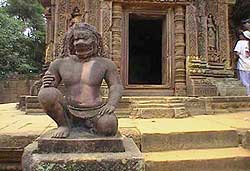
There's just too much to show. Around every bend a new detail
pops up. Everything left by the great Angkor period remains in
stone, and if you let your mind ponder the fact that most of
this great rock was covered with even more intricate wood pieces
the complex must have been unimaginable.)
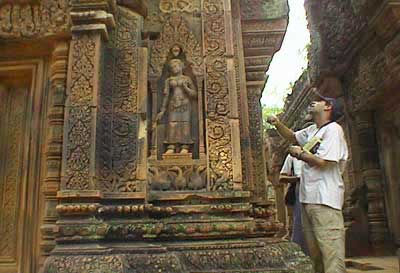
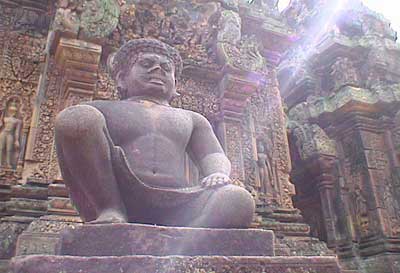
|
|






